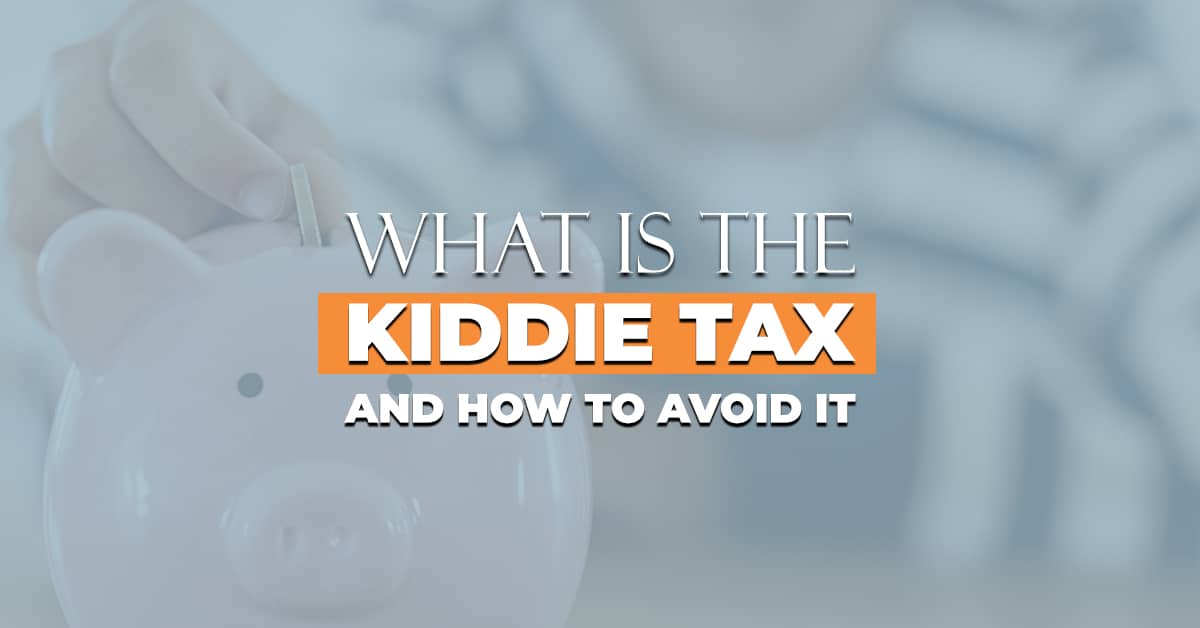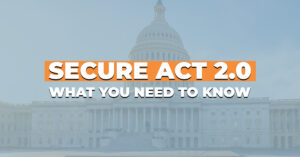
You might assume that if you have a child, they don’t need to file an income tax return. This isn’t entirely accurate. Even if the person is a minor, the kiddie tax could come into play. It was introduced as part of the Tax Reform of 1986 to keep wealthy people from transferring money to their kids to take advantage of lower tax rates.
This tax is not specific to children with unearned income who are under 18 years of age. It also encompasses full-time students between 18 and 24. While the kiddie tax factors into most unearned income a child receives, it doesn’t have an impact on wages or salary earned by the youngster, which will be taxed at the normal rate.
In this article, we’ll explain more about what the kiddie tax is and how it could impact you and your children. We’ll also give you some solutions for avoiding this tax in a way that is legal and completely aboveboard.
What the Kiddie Tax Is
Before the kiddie tax was put into place, children’s investments were taxed at lower rates. As such, this tax is a set of rules that apply to children and students. If the child’s unearned income is above the threshold for the kiddie tax for that tax year, it will be taxed at the parent’s marginal tax rate instead of the child’s.
The tax threshold for the kiddie tax is different on an annual basis. For instance, the amount was $2,200 in 2021 and $2,300 in 2022.
Who Does the Kiddie Tax Impact?
Children are subject to this tax if they meet support and age requirements set out by the Internal Revenue Code (IRC). It applies to children in the following situations:
- Kids who are 17 or younger at the end of the tax year regardless of level of support.
- Teens who are 18 at the end of the year but only if their earned income is equal to or less than 50% of their support.
- Adults between 19 and 23 years of age if they are in school on a full-time basis and their earned income is equal to or less than 50% of their support.
However, there are some situations where the kiddie tax does not apply to kids, including the following:
- Children who have no living parents at the end of the tax year
- Individuals who were married and filing joint returns for the year or who do not need to file a return for the tax year
When we mention support above, it has a specific meaning. Support is defined as education, medical care, clothing, shelter, and food. The amount a parent supports their child from the ages of 18 to 23 impacts whether the child’s unearned income falls under the kiddie tax. For kids under 18, support is not considered.
Methods to Avoid the Kiddie Tax
The kiddie tax can get very expensive for younger people with a large amount of unearned income. The higher the tax rate is for the parents, the more expensive the kiddie tax ends up being.
Due to this, there are a few ways to avoid such a huge impact, which we’ll share below.
Understand the Unearned Income Threshold
The kiddie tax is only going to be an issue if your child has unearned income beyond the threshold for a particular tax year. As of 2023, this is $2,500. It’s adjusted regularly for inflation. This threshold can help you work around the tax. As long as the unearned income is below $2,500, no kiddie tax is required.
Choose Smart Investments
When a child has significant investments, this can be a way to prevent the kiddie tax or keep it so low that it doesn’t have a huge impact. There are a variety of investments that work well for this and we’ll go over them below.
- Growth stocks – Choose growth stocks with little turnover which results in less unearned income from dividends. Gains up to the threshold are not subject to the kiddie tax.
- Tax-efficient mutual funds – Buying and holding mutual funds is another option to minimize the kiddie tax, similar to growth stocks.
- Series EE US savings bonds – Significant amount of savings bonds can prevent the kiddie tax. The interest income is tax-deferred until you cash in the bonds.
- Section 529 college savings plan – As long as qualified, withdrawals from this account are tax-free. However, there are restrictions on what the money can be used for.
- Life insurance products – Life insurance products that have investment accounts can be used for college savings. Money can be taken out to cover college costs on a tax-free basis.
Increase Earned Income
Assuming a child between 18 and 23 has earned income that is more than 50% of their support for the year, there is no kiddie tax. That doesn’t mean the money has to be spent on support. For instance, they could earn the money and invest it or put it in a college fund and still slip past the kiddie tax.
If a child has additional earned income, they may be able to get a full standard deduction as they aren’t considered the parent’s dependent. Additional earned income can increase the deduction and help shelter the earned income and beyond.
Final Thoughts
The kiddie tax can have a huge impact on children who have a large amount of unearned income. If the tax wasn’t in place, most of a child’s taxable income would have the same rates as for single taxpayers, which would result in lower tax bills. Understanding the implications of the kiddie tax and strategizing solutions to lower tax liabilities is a must.
There are a few ways to do this but you will need the help of an expert to make sure it’s handled right. Proper planning and be provided by your financial advisor or tax professional. At Jones CPA Group, we can help you avoid or minimize the impact of this tax on the members of your family.






